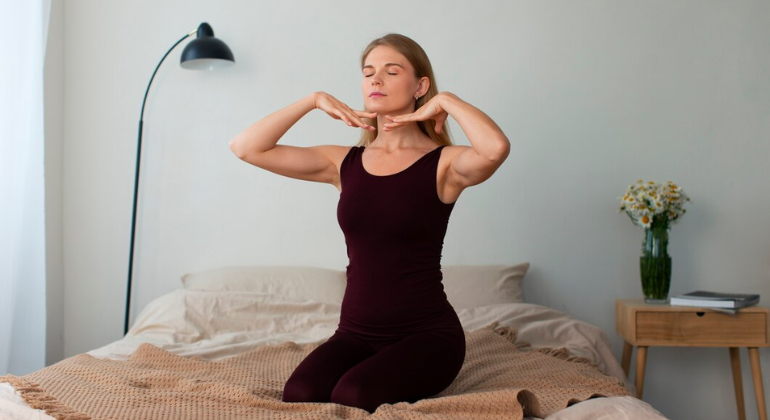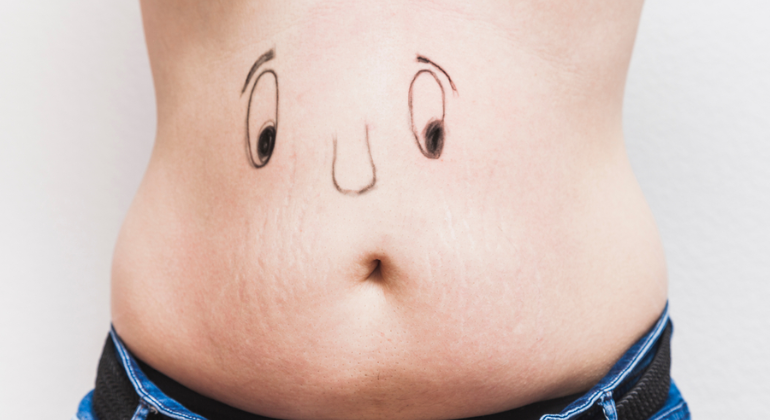Waking up with neck pain and stiffness can be an uncomfortable way to start your day, affecting your mood, mobility, and productivity. Whether caused by poor sleeping posture, an unsupportive pillow, underlying conditions like arthritis or cervical spondylosis, or habits such as prolonged screen time, morning neck pain can impact your overall quality of life. …
Waking up with neck pain and stiffness can be an uncomfortable way to start your day, affecting your mood, mobility, and productivity. Whether caused by poor sleeping posture, an unsupportive pillow, underlying conditions like arthritis or cervical spondylosis, or habits such as prolonged screen time, morning neck pain can impact your overall quality of life. The neck’s delicate structure makes it prone to strain, highlighting the importance of identifying and addressing the causes of discomfort.
Understanding why neck pain occurs is key to finding lasting solutions. By recognizing contributing factors, you can take proactive steps to relieve pain and prevent it from recurring. In this blog, we’ll discuss common causes of neck pain, effective remedies for morning stiffness, and exercises and treatments to help you wake up feeling refreshed and pain-free. With the right strategies, you can enjoy mornings that are more comfortable and productive.
Top Reasons Why You Wake Up with Neck Pain
Morning neck pain often stems from a combination of lifestyle factors, sleep habits, and underlying health conditions. Here are the most common causes:
1. Poor Sleeping Posture
Sleeping in an awkward position can strain the muscles and ligaments in your neck.
- Common Triggers:
- Using a pillow that’s too high or too flat.
- Sleeping on your stomach, which forces the neck to rotate unnaturally.
- Lack of proper neck support.
- Impact:
This can lead to muscle stiffness and discomfort that lingers throughout the day.
2. Unsupportive Mattress or Pillow
Your bedding plays a significant role in maintaining proper spinal alignment while you sleep.
- Common Issues:
- A mattress that is too soft or sagging.
- Pillows that fail to support the natural curve of your neck.
- Impact:
This misalignment places stress on the cervical spine, causing pain and stiffness.
3. Stress and Muscle Tension
Stress can cause you to unconsciously clench your jaw or tense your neck muscles while sleeping.
- Impact:
Prolonged muscle tension reduces blood flow, leading to stiffness and discomfort upon waking.
4. Cervical Spondylosis
This age-related condition, also known as arthritis of the neck, is caused by wear and tear on the cervical spine.
- Symptoms:
- Stiffness and pain, especially after periods of inactivity like sleep.
- Reduced range of motion in the neck.
- Impact:
It may require medical intervention or targeted physiotherapy for lasting relief.
5. Sudden Neck Strain (Torticollis)
A sudden twist or strain during sleep can lead to a stiff neck, also known as torticollis.
- Symptoms:
- Sharp pain on one side of the neck.
- Difficulty turning your head.
- Impact:
This condition is often temporary but requires careful handling to prevent further injury.
Transition: Identifying the cause of your neck pain is key, but what can you do to relieve it? Let’s explore some effective remedies.
Top Solutions for Morning Neck Pain and Stiffness

If you’re waking up with neck pain, the good news is that there are simple remedies to help ease the discomfort. These steps focus on reducing stiffness, improving mobility, and preventing future pain.
1. Apply Heat or Ice
Why It Works:
- Heat relaxes tense muscles and improves blood flow.
- Ice reduces inflammation and numbs pain in acute cases.
How to Use:
- Apply a heating pad or warm towel to your neck for 15–20 minutes.
- Alternatively, use an ice pack wrapped in a cloth for 10–15 minutes.
2. Gentle Neck Stretches
Stretching helps loosen tight muscles and restore mobility.
Try These Stretches:
- Neck Tilt: Gently tilt your head forward, bringing your chin toward your chest. Hold for 10 seconds, then return to neutral.
- Side Stretch: Tilt your head to one side, bringing your ear toward your shoulder. Hold for 10 seconds on each side.
- Neck Rotation: Turn your head slowly to look over each shoulder, holding the position for 10 seconds.
3. Massage Therapy
Massaging the neck can help reduce muscle tension and improve circulation.
- Use your fingers to gently knead the muscles at the base of your neck and shoulders.
- For deeper relief, consider using a massage ball or seeking professional massage therapy.
Transition: While these remedies can provide immediate relief, long-term prevention requires understanding and addressing the root causes.
Top Causes of Neck Stiffness and the Best Ways to Treat It

The causes of neck stiffness vary, but addressing them involves a combination of lifestyle changes, proper support, and targeted therapies.
1. Improve Your Sleep Setup
Your mattress and pillow are critical for maintaining a neutral spine.
Tips for Better Sleep:
- Use a memory foam pillow that conforms to the curve of your neck.
- Choose a medium-firm mattress to support proper spinal alignment.
- Sleep on your back or side with a pillow between your knees to reduce strain.
2. Manage Stress
Stress contributes to neck stiffness by causing muscle tension.
How to Reduce Stress:
- Practice relaxation techniques like deep breathing or meditation before bed.
- Engage in regular physical activity to release tension.
- Incorporate activities like yoga to improve overall flexibility and reduce stiffness.
3. Seek Physiotherapy for Cervical Spondylosis Relief
If your neck pain is due to cervical spondylosis, physiotherapy can provide lasting relief.
Benefits of Physiotherapy:
- Improves range of motion and reduces stiffness.
- Strengthens the neck and shoulder muscles to support the cervical spine.
- Includes techniques like manual therapy, traction, and specific exercises for long-term improvement.
Transition: Along with these treatments, specific exercises can help speed up recovery and prevent recurring neck pain.
Best Stiff Neck Exercises for Quick Post-Sleep Recovery
These exercises are designed to relieve tension and improve mobility in your neck after sleeping. Regular practice can help you wake up pain-free.
1. Chin Tucks
Target Area: Front Neck Muscles and Spine Alignment
How to Perform:
- Sit or stand upright with your back straight.
- Gently pull your chin toward your neck, creating a “double chin” effect.
- Hold for 5 seconds, then relax.
- Repeat 10 times.
Why It Helps:
This exercise strengthens the neck’s supporting muscles and improves posture.
2. Shoulder Blade Squeezes
Target Area: Upper Back and Shoulders
How to Perform:
- Sit or stand upright with your arms at your sides.
- Squeeze your shoulder blades together as if trying to hold a pencil between them.
- Hold for 5 seconds, then relax.
- Repeat 10 times.
Why It Helps:
This movement relieves tension in the upper back, supporting better neck alignment.
3. Side Neck Stretches
Target Area: Side Neck Muscles
How to Perform:
- Sit upright and gently tilt your head toward one shoulder.
- Use your hand to apply light pressure for a deeper stretch.
- Hold for 10 seconds, then switch sides.
- Perform 2–3 repetitions per side.
Why It Helps:
Side stretches loosen tight neck muscles, reducing stiffness and improving flexibility.
Transition: By integrating these exercises into your routine, you can reduce morning neck pain and improve your overall neck health.
Summing Up: How to Manage and Prevent Neck Pain Effectively
Waking up with neck pain doesn’t have to be a daily struggle. By understanding why people wake up with neck pain and addressing the root causes, you can take effective steps toward relief and prevention. From morning neck pain remedies to stiff neck exercises for post-sleep recovery, there are numerous strategies to help you feel better and improve your quality of sleep.
If your pain persists or worsens, seeking professional help is crucial. At Painflame, our physiotherapy experts specialize in treating neck stiffness and conditions like cervical spondylosis.
Contact Painflame today to schedule your consultation and start your journey toward pain-free mornings!
Recent Blog : 5 Effective Frozen Shoulder Exercises to Relieve Pain and Restore Mobility at Home
Frequently Asked Questions (FAQs)
What is the best sleeping position to prevent neck pain?
The best sleeping position to prevent neck pain is on your back or side. Sleeping on your back helps maintain a neutral spine alignment, while side-sleeping with a supportive pillow keeps your neck and spine in a straight line. Avoid sleeping on your stomach, as it forces the neck into an unnatural position.
Can dehydration cause neck pain and stiffness?
Yes, dehydration can contribute to neck pain and stiffness. When your body lacks proper hydration, the discs in your spine may lose flexibility, leading to discomfort and reduced cushioning. Staying hydrated helps maintain spinal health and reduces muscle tension.
How do I choose the right pillow to reduce neck pain?
Choose a pillow that supports the natural curve of your neck. Memory foam or cervical pillows are excellent options, as they conform to the shape of your neck and provide consistent support. Ensure the pillow height matches your sleeping position—lower for back sleepers and higher for side sleepers.
How long does morning neck pain usually last?
Morning neck pain often lasts anywhere from a few minutes to a few hours, depending on its cause. Poor sleeping posture or a stiff neck from mild strain may resolve quickly with stretching or heat application. However, chronic issues like cervical spondylosis may require professional intervention for lasting relief.
Are there any lifestyle changes that can help prevent morning neck pain?
Yes, adopting the following lifestyle changes can help:
1. Maintain proper posture during the day, especially while using screens.
2. Take breaks to stretch during prolonged desk work.
3. Avoid heavy bags that strain your shoulders and neck.
4. Engage in regular exercise to strengthen neck and shoulder muscles.
5. Invest in ergonomic furniture and a supportive sleep setup.






